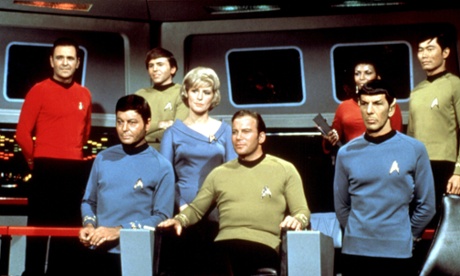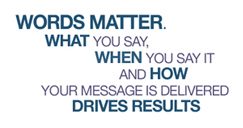Microsoft's 'Star Trek' voice translator available before the end 2014
The Guardian June 2, 2014

Skype Translate demo showed real-time voice-to-voice translation between English and German


For Captain Kirk and the crew of the Starship Enterprise, seeking out new life and new civilisations wouldn't have been much use without a universal translator to deal with new languages too. Fortunately for the denizens of the 23rd century, Microsoft has begun making it a reality, two centuries early.
The company unveiled a new service for Skype on Tuesday that can understand spoken words and translate them into another language, and speak them back almost in real time.
Skype Translator will be available for Windows 8 before the end of the year, after 15 years of research, but Microsoft intends to make the service available to other platforms. Skype currently has 300 million monthly users spread across TVs, computers, tablets and smartphones.
“Skype has always been about breaking down barriers. And the language barrier is huge. It has been a blocker to productivity and human connection,” noted Gurdeep Pall, corporate vice president of Skype and Lync at Microsoft in a blog post. “Skype Translator helps us overcome this barrier. It’s going to make sure you can communicate with anyone without language barriers.”
English to German and visa versa
Pall demonstrated the technology at the Code conference in California on Tuesday, showing real-time translation of a Skype video call with a german colleague.
Pall was speaking English, allowing the translation system to then convert his speech into spoken German, while his video caller spoke German allowing Pall and the audience to hear the translation into English in near real-time.
The system only made one minor mistake a few minor mistakes in the three-minute-long conversation, demonstrating the improved word, meaning and order recognition Microsoft has made since the technology was first demonstrated translating English to Chinese two years ago.
Microsoft's Skype Translator being demonstrated at the Code conference in California on Tuesday.
‘Star Trek vision for a Universal Translator isn’t a galaxy away’
“It is early days for this technology, but the Star Trek vision for a Universal Translator isn’t a galaxy away, and its potential is every bit as exciting as those Star Trek examples,” explained Pall. “Skype Translator opens up so many possibilities to make meaningful connections in ways you never could before in education, diplomacy, multilingual families and in business.”
Machine translation research has been ongoing for decades, while Microsoft’s own machine translator research started 15 years ago, first with text-based translation and later with voice recognition and dictation technologies that have been present in Microsoft Office and Windows since 2001.
“It’s not just about daisy-chaining speech recognition, machine translation and speech synthesis,” said Microsoft chief executive Satya Nadella. “It’s a deep neural net that you build that synthesises a model to be able to do speech recognition in pretty magical ways.”
A neural network is a computer system that can "learn" to recognise inputs and generate outputs rather like a group of nerves in the brain.
'It's brain like and no one knows why'
But it is the way that the technology is developing, almost independently of the scientists and programmers working on the neural networks that simulate the human brain, that excited Nadella most.
“The most fascinating aspect is something called transfer learning,” Nadella explained. “You teach it English, and it learns English. You teach it Mandarin and it learns Mandarin, but it also becomes better at English. And then you teach it Spanish, and it gets even better at English and Mandarin."
“Quite frankly, no one knows why. It’s brain-like,” Nadella quipped.
Microsoft acquired Skype, which is based in London, in May 2011 for $8.5bn – its largest purchase at the time. Skype is the most used voice and video chat service globally, but is facing increasing pressure from other messaging services, including Facebook’s WhatsApp, Google’s Hangouts and Apple’s FaceTime.
Skype Translate could be a feature to set Skype apart and maintain its competitive edge, although Microsoft has not said whether the service will be free or a paid addition.
 +7 (495) 969-87-46
+7 (495) 969-87-46





















